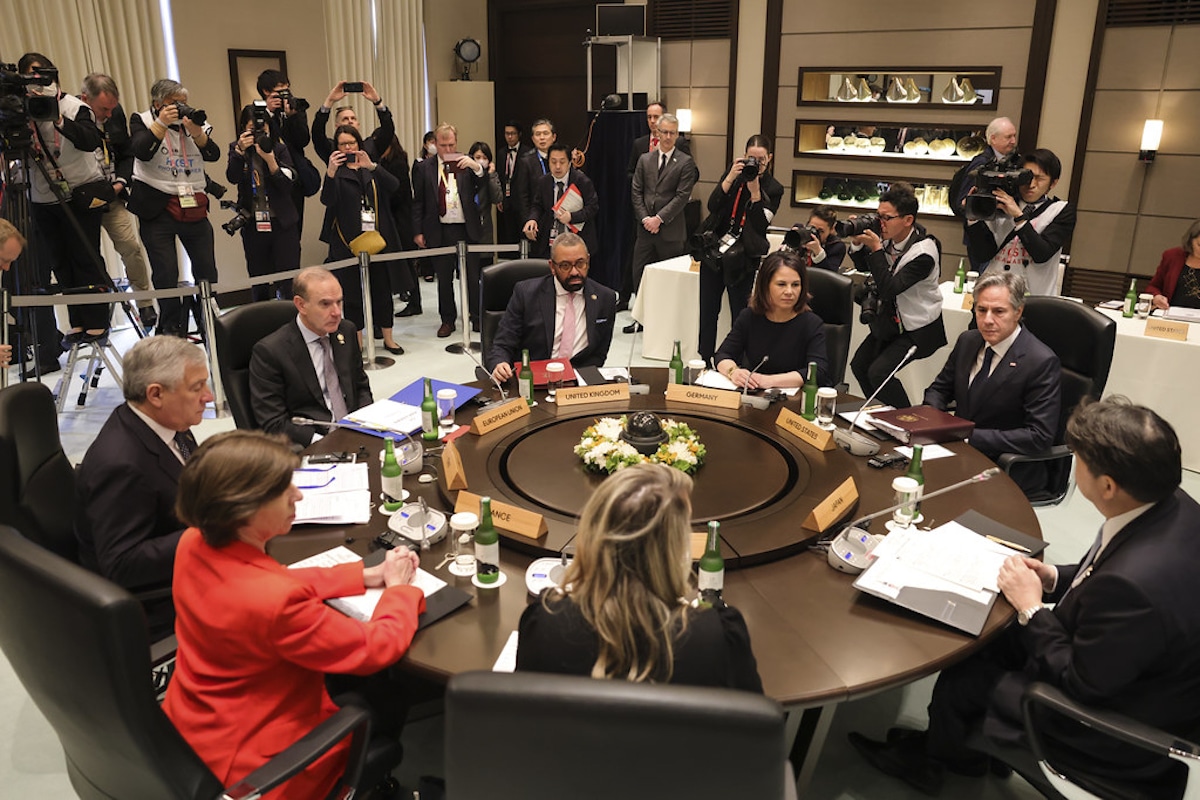G7 Nations Agree to Speed Renewable Transition but Leave Door Open to Gas Investments

 Why you can trust us
Why you can trust us
Founded in 2005 as an Ohio-based environmental newspaper, EcoWatch is a digital platform dedicated to publishing quality, science-based content on environmental issues, causes, and solutions.
The Group of Seven (G7) of the richest countries in the world have set ambitious new goals for offshore wind and solar capacity. In an effort to speed up the global phaseout of fossil fuels, the nations have collectively agreed to accelerate renewable energy development.
Canada and other member nations had pressed for a 2030 deadline for the phaseout of coal, but the group did not reach a consensus. They collectively decided that fossil fuels would still be useful in case of future energy shortages and did not shut down the continuation of investments in gas, reported Reuters.
“By failing to commit to fully decarbonising the power sector, to slashing road sector emissions and totally eliminate international fossil fuel finance, the ministers really missed an opportunity to provide leadership in addressing the climate emergency,” Alden Meyer, senior associate at climate consultancy E3G, told the Financial Times.
The G7 nations agreed to speed up the phaseout of fossil fuels that failed to use carbon capture technology, but said in their 36-page communiqué that scientific knowledge wasn’t the only information that would influence their decision making.
“We stress the importance of the best available science and evidence as well as Indigenous knowledge in policy-making,” the document said.
The agreement followed two days of meetings on energy, climate and environmental policy in Sapporo, Japan, and reiterated the nations’ pledge to get to net zero greenhouse gas emissions by 2050, reported The Globe and Mail.
“We call on and will work with other countries to end new unabated coal-fired power generation projects globally as soon as possible to accelerate the clean energy transition in a just manner,” the document stated.
Since Russia’s invasion of Ukraine, the development of renewables has become a focal point in the pursuit of energy security.
“We are facing the unprecedented triple global crisis of climate change, biodiversity loss and pollution that are mutually reinforcing and intrinsically linked, as well as an ongoing global energy crisis of unprecedented scale which has worsened economic and social disruptions, health threats and environmental damage, including those caused or exacerbated by Russia’s war of aggression against Ukraine,” the agreement said.
G7 ministers agreed to increase offshore wind capacity by 150 gigawatts and to increase solar to more than one terawatt by 2030, Earth.Org reported.
“The solar and wind commitments are huge statements to the importance that they will rely on the energy superpowers of solar and wind in order to phase out fossil fuels,” said Dave Jones, head of data insights at energy think tank Ember, as reported by Reuters. “Hopefully this will provide a challenge to Japan, for which offshore wind is the missing part of the jigsaw that could see its power sector decarbonise much quicker than it thought possible.”
The G7 nations also brought forward the goal of eliminating new plastics pollution by a decade to 2040.
“We will globally advance and promote a green transformation, working together to realize transformation of our economies to reach GHG net zero by 2050 at the latest, in order to keep a limit of 1.5 °C temperature rise within reach and enable climate resilient, circular, pollution-free, and nature positive economies, and to halt and reverse biodiversity loss by 2030,” the communiqué read.
Subscribe to get exclusive updates in our daily newsletter!
By signing up, you agree to the Terms of Use and Privacy Policy & to receive electronic communications from EcoWatch Media Group, which may include marketing promotions, advertisements and sponsored content.

 233k
233k  41k
41k  Subscribe
Subscribe 




